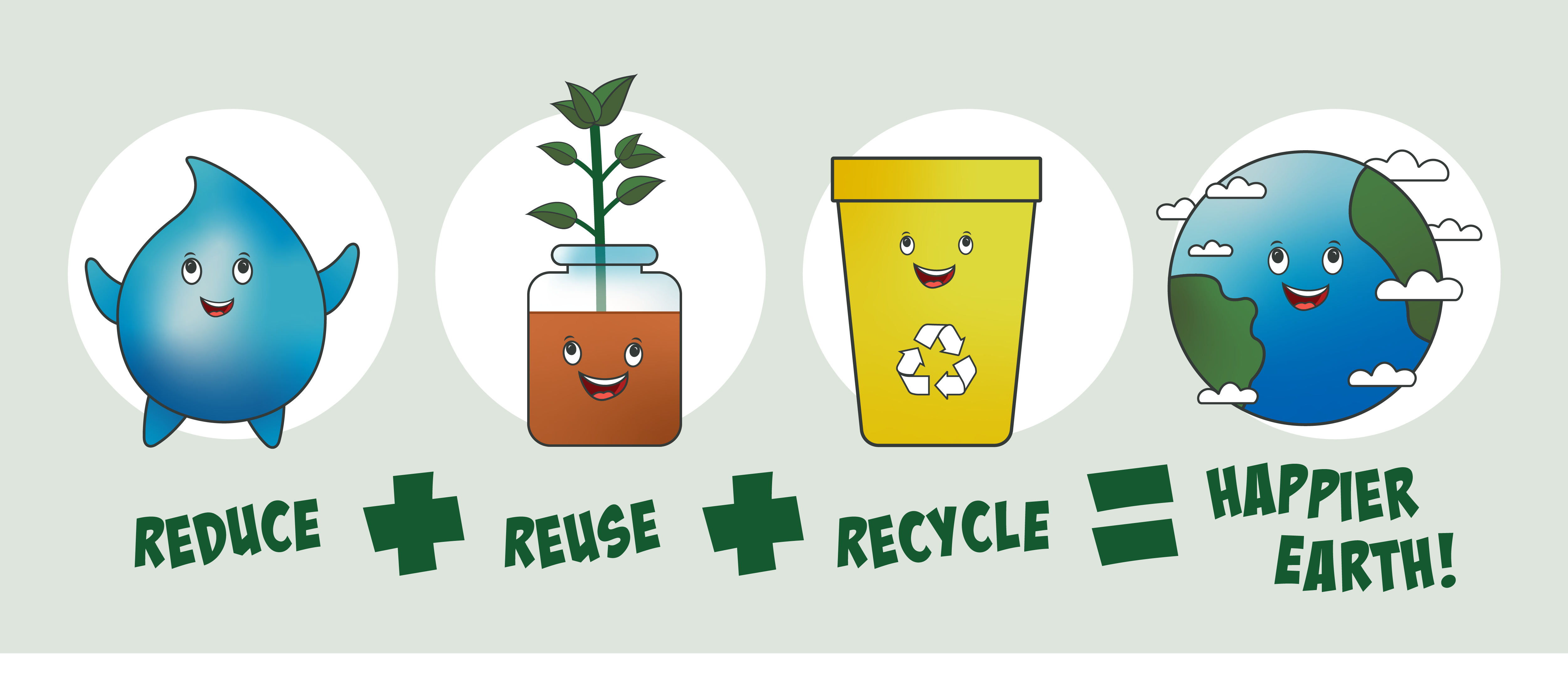
America Recycles Day
A history of the holiday and how we can make a difference today
The concepts of reducing, reusing, and recycling are more relevant today than ever before. More and more often we hear about drastic changes in the natural environment – droughts and fires in one area, floods or blizzards in another. Extreme weather conditions are increasing in frequency and severity: since 1980 the United States has been hit by 219 weather and climate disasters that exceeded $1 billion in damages each (Schmidt et al., 2019). Air, water, and soil pollution are significant contributors to these changes – and we certainly have a hefty role to play. The United States has the third-largest population of all countries, but it produces the most municipal solid waste in the world: 258 million tons of MSW was generated in 2017 alone (Sebastian, 2020).
How America Recycles Day Got Started
The good news is since we’re such a big part of the problem – we can be an even greater part of the solution! Some ways we’ve brought more attention to the importance of recycling is through holidays like America Recycles Day. The roots of America Recycles Day go to the state of Texas. In 1994 two employees at the Texas Commission on Environmental Quality suggested a holiday to promote recycling through a six-week campaign to boost recycling in the state (Gedert, 2017). When they started an environmental-focused public relations and advertising agency, they proposed transforming Texas Recycles Day into America Recycles Day. The first national run of America Recycles Day was Nov. 15, 1997.
Recycling in the U.S. Today
Since then, despite many efforts of organizations like the National Recycling Coalition and Keep America Beautiful, the national rate of recycling in America has languished at about 34%. Even this modest success didn’t last long. It came crashing down in February 2018 when the Chinese government, in response to growing waste contamination and effects of pollution, issued a declaration that China would no longer accept 24 classes of imported waste. It led to escalating prices for recycling and incineration, and many towns across America ended curbside pickup for recycling altogether (Dolesh, 2019).
As a result, many environmental groups have stressed the need to place a greater focus on reducing and reusing, which lessens the burden on the recycling facilities. You may have noticed this response in the rise of the minimalist movement. The minimalist movement has skyrocketed in popularity, with many books, podcasts, TV shows, and social media channels dedicated to educating people on reducing their consumption and reusing things they already own.
Want to learn more about minimalism? Here are Lana’s top picks!
- Read “Essentialism” by Greg McKeown.
- Listen to The Minimalists podcast by Joshua Fields Millburn and Ryan Nicodemus.
- Watch “The Extreme Minimalist” YouTube channel by Heal Your Living.
Make a Difference with CCPR
Want to make an immediate difference? Volunteer with us this America Recycles Day! We invite volunteers to come out to Central Park on November 13 from 10 a.m. till noon and enjoy an education session on reducing and reusing followed by a waste pickup along the Monon Greenway. CCPR’s Volunteer Coordinator Lana Ramer and Natural Resources Coordinator Joanna Woodruff will showcase items they use in their homes every day to live a lower impact, sustainable lifestyle. We can all start where we are and aim to reduce our waste. Small efforts of many will make a big impact in the long run!
Register for this year’s America Recycles Day Event
References
-
Schmidt, R., Mojica, J., Wildish, J. (2019). FEMA Funding for Building Nature-Based Resilient Communities. In Parks & Recreation: The official publication of the National Recreation and Park Association, April 2019.
-
Sebastian, A. (2020). 5 Countries that Produce the most waste. Retrieved from https://www.investopedia.com/articles/markets-economy/090716/5-countries-produce-most-waste.asp on October 26, 2020.
-
Gedert, B. (2017). The history of America Recycles Day. Retrieved from https://recycle.com/history-america-recycles-day/ on October 26, 2020.
-
Dolesh, R. (2019). Recycling is dead. Now what? In Parks & Recreation: The official publication of the National Recreation and Park Association, April 2019.
